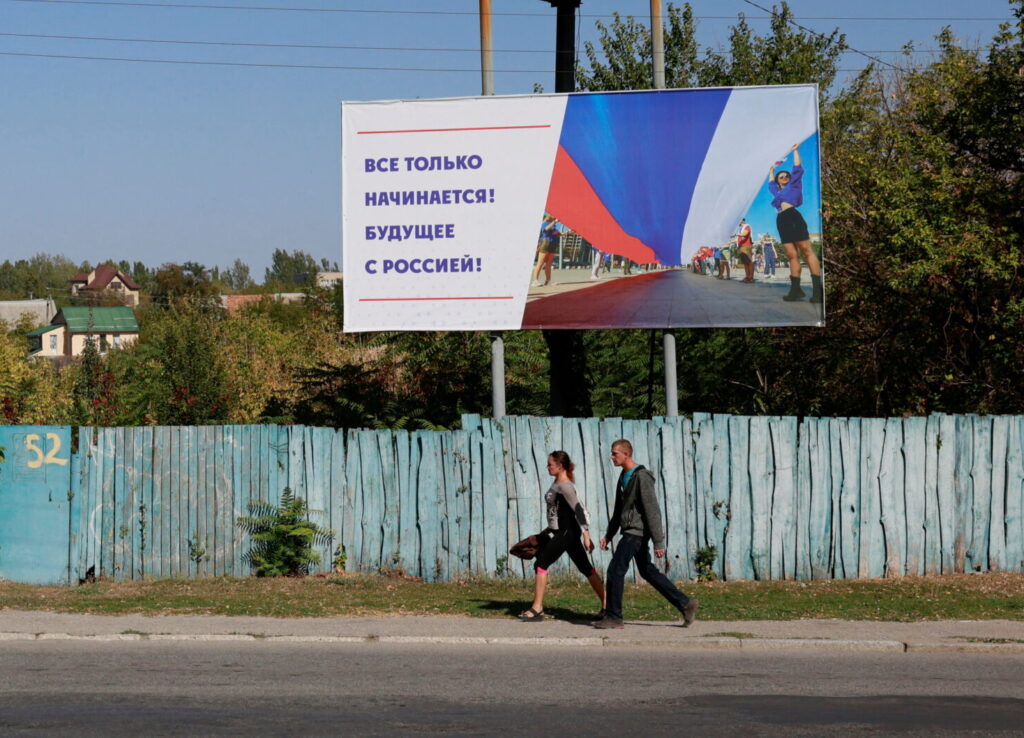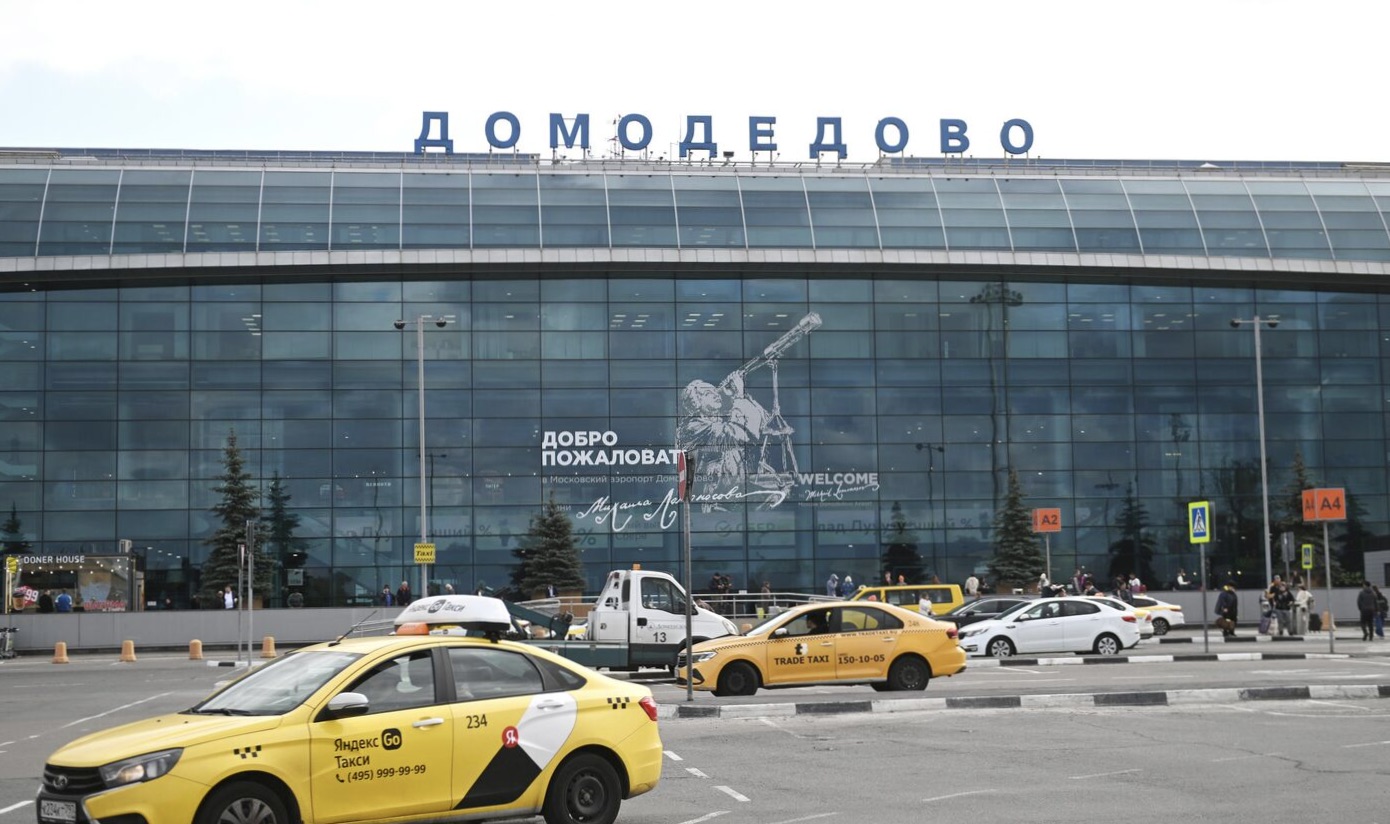
Kremlin Works to Erase Ukrainian Identity and Militarize Occupied Regions
Kremlin Works to Erase Ukrainian Identity and Militarize Occupied Regions
Executive Summary:
- The Kremlin is systematically erasing Ukrainian identity in occupied regions to solidify long-term submission and control by banning Ukrainian in schools, rewriting history, and indoctrinating children.
- In the occupied territories, the Kremlin is linking Russian citizenship to access to healthcare, SIM cards, and basic services, coercing Ukrainians into seeking Russian passports and turning survival into a lever for loyalty.
- Forced mobilization of Ukrainians, including abducted children reaching adulthood, indicates how occupation policies feed directly into Russia’s war machine and amount to demographic warfare.
On July 17, the Russian State Duma approved a law that expands the grounds for revoking naturalized citizenship, adding 17 more offenses to the current 64 articles of the Criminal Code. The law, however, will not apply to Russian citizens living in the self-proclaimed Donetsk and Luhansk “people’s republics,” the occupied parts of Ukraine’s Kherson and Zaporizhzhia oblasts, or Crimea (Glavcom; Meduza, July 17). This signals the Kremlin’s willingness to increase administrative and legal pressure in its attempts to control and subdue Ukrainians in the occupied territories.
This development showcases how the Kremlin is weaponizing citizenship as a coercive tool that goes beyond administration, serving as part of a broader strategy to erase Ukrainian identity, impose pro-Russian loyalty, and militarize the occupied population. This is a continuation of the deliberate strategy of enforcing citizenship on Ukrainians, which started following the full-scale invasion of Ukraine in February 2022. Throughout 2024, the Kremlin pressured Ukrainians residing in occupied territories to obtain Russian citizenship to access medical care and other social benefits in the Russian-occupied regions of Zaporizhzhia and Luhansk oblasts (Kyiv Independent, January 22, 2024; REACH, January 2). The Kremlin has also restricted access to mobile communications, making it impossible to obtain a SIM card from local mobile operators without a Russian passport (DW, April 10).
Russia has been steadily tightening digital control and suppression in the occupied territories since its full-scale invasion of Ukraine. Already in 2022, the Kremlin blocked local access to Ukrainian mobile and Internet operators throughout the occupied territories (Suspilne, May 16). At the same time, the Kremlin has methodically targeted social media and digital platforms in occupied territories to limit access to information. For instance, in December 2024, Russia blocked the Viber messenger app across occupied Crimea, followed by deep restrictions on the use of virtual private networks (VPNs) (Suspilne, December 16, 2024). This is just one of the latest bans, following previous ones on the use of X, Facebook, YouTube, Signal, and Instagram (CBA Initiatives Center, July 23).
Russian occupation authorities have also been systematically confiscating television equipment across the occupied territories (Gazeta.ua, July 22). This likely aims to suppress independent information, block access to Ukrainian broadcasts, and enforce control over the media space as part of broader efforts to eliminate Ukrainian identity and impose Kremlin narratives. Russian authorities have forced the “Russian world” satellite platforms to replace older equipment with restricted systems that only allow access to Russian state channels, thereby blocking access to Ukrainian and international broadcasts (Suspilne, May 16).
Starting on September 1, the Ukrainian language has been banned entirely in schools across all occupied territories (BBC Ukrainian Service, June 26). This move legally removes any remaining options for instruction in Ukrainian and finalizes a longer trend of pressuring educators and families to abandon the Ukrainian language. Russian occupational authorities have additionally removed Ukrainian books, with pupils being taught a version of history that denies Ukraine’s existence (Ukrainer.net, July 15, 2024). Attempts to access remote education in Ukraine, moreover, are met with threats of fines, loss of custody, or arrest (Human Rights Watch, July 20, 2024).
The Kremlin’s rewriting of Ukrainian identity does not end with the school curriculum. Its occupation authorities have sent thousands of Ukrainian children to summer camps, university shifts, and military-sports programs to indoctrinate and militarize them. Camps such as Avangard teach Russian patriotism, weapons handling, and drone operation (Komsomolskaya Pravda, July 19; ISW, July 24). Their explicit aim is to instill a spirit of love for the Russian motherland. In July, meanwhile, the education ministry in Donetsk introduced new textbooks written by the Kremlin that present Ukrainian regions as historically Russian territories (Dan-News, July 22).
Russian-installed authorities have also begun to actively conscript males residing in occupied territories. The Kremlin launched the first large-scale conscription of male residents of around 1,000 people in October 2024 and has focused primarily on the newly occupied areas since 2022 (Hromadske, November 19, 2024).
Ukrainians who receive Russian passports are obliged to register for military service, and failure to do so could result in punitive measures, including arrest and a ban on leaving the occupied territories (Suspilne, October 2, 2024).
In April, the Kremlin stepped up mobilization efforts with a new spring conscription decree targeting not only Russians but also Ukrainians in occupied territories (Zaxid, April 2). Conscription offices began sending summonses to male residents in the Donetsk, Luhansk, Zaporizhzhia, and Kherson oblasts. Men aged 18 to 30, particularly those forced to accept Russian passports, now face threats of heavy fines, bans on registering property, restrictions on banking access, and even up to two years in prison for evading military service. While officially labelled a one-year draft, reports confirm that many conscripts are being forced into signing long-term contracts and are sent to the front lines (Kharkiv Human Rights Group, May 21).
Raids on men of mobilization age have intensified, with checks conducted in public spaces and at universities. The primary objective is to compel these men to sign contracts for military service with the Russian Ministry of Defense (RealGazeta, December 4, 2024). Since July, there have been increasing reports of students at educational institutions being pressured, frequently abducted, and sent to the frontlines without adequate preparation (Telegram/atesh_ua, July 16). Families are misled about their children’s whereabouts, being told they are undergoing military “internships.”
In May, Russia passed legislation allowing individuals without Russian citizenship to sign military contracts (Telegram/luhanskaVTSA, May 23). This measure targets residents of occupied territories who had their Russian passports revoked. Ukrainian officials warned that this law paves the way for conscripting stateless civilians across the occupied territories, particularly Luhansk oblast (Ministry of Foreign Affairs of Ukraine, March 31).
Russia’s abductions of Ukrainian children are an even more alarming situation. Since 2014, over 35,000 children have been forcibly deported to Russia or occupied Crimea (Ukrinform, June 27). Many of those children are now being conscripted into the Russian army as they reach the age of adulthood (UNIAN, July 24). Teenagers who passed through re-education programs have been routed into cadet schools and combat training facilities. Andriy Yermak, chief of staff of the Ukrainian president, told The Times that Ukraine has obtained evidence of abducted minors being among the battlefield casualties (The Times, July 24).
An increasing number of Ukrainians conscripted by Russia have died in combat. For instance, as of June, the Ukrainian Presidential Representative Office in the Crimean Peninsula claims that at least 1,900 Russian servicemen from units deployed in Crimea have been killed. Of these, 1,200 were likely Ukrainian citizens (Facebook/ppu.gov.ua, May 19).
The Kremlin is conducting a deliberate campaign of erasure of Ukrainian identity and culture, along with forced conscription of Ukrainians, and the militarization and abduction of Ukrainian children. These measures are part of the Kremlin’s identity warfare aimed at forcing the obedience of Ukrainians in the occupied territories under the threat of arrest, denial of services, or fines. Failure to address these systematic abuses risks normalizing the Kremlin’s model of demographic warfare and territorial control.


